Contrary to popular belief, money can buy happiness. For example, I know a few shoppers, including myself, who occasionally use money to buy happiness. They go to a store, probably to get something they actually need, then they see something else while they are there. It appeals to them, so they toss it in the cart and buy it, generating a small amount of happiness. They may regret it later, especially when they balance the check book, but if it didn’t give them some sort of satisfaction, they wouldn’t have been motivated to buy it in the first place. Basically, their money bought them a tiny slice of temporary happiness.
Using money to buy things gives you a kind of high, so it is similar to a drug. Unfortunately, like other drugs, it can lead to addiction and become a costly habit. Also, the feeling you get from buying things is hard to sustain long term. The high eventually fades. This is because after an item is acquired, it passes from being an item you wanted, to becoming an item you have already acquired. Wanted items are more valuable than other items, and this drives you to want new things more than the things you already have, so in order to sustain this happiness, you would have to continuously acquire new things.
Another problem is that it requires novelty. If you buy an interesting figurine to go on your shelf, you might be very happy about that, but buying a second or third figurine that looks exactly like the first would have rapidly diminishing returns. It has to be something different, something novel. Imagine a mantle with 150 figurines that looked exactly alike. The value of each one would diminish with each new purchase because they are not unique or rare. You would need a world with a massive amount of variety to sustain the high of buying things, which probably explains why there are so many different goods being offered in our society. Supplying goods to shopping addicts can actually be a very lucrative business.
Another thing to consider is that every material item you purchase takes up a certain amount of space, unless it is something disposable, which may cause other problems. Every square inch of your house and property costs you something. When you bring something home, it will have to live somewhere and take up space. You are essentially paying the rent for all the physical items you own. If you can’t fit everything in your house and garage, you will end up paying extra rent for public storage, ultimately eating away even more of your income.
Also, the things you own usually cost you something just to own them, though it may not be obvious. You have to occasionally dust items that take up space on shelves, and if you are the type of person who moves a lot, you may find it to be a pretty painful process. You will have to box up all these items for transport. This is often the point in time when people decide to purge a few items. You just get tired of lugging them around. People who move around a lot probably know the value of not owning too much stuff. Even when you are done with the stuff, it often costs to dispose of it, and future generations will have the burden of dealing with mountains of discarded items that won’t easily return to nature.
Nothing lasts forever. The items you buy all have a shelf life. Eventually that will come to an end. It might be that they fall off the shelf and break, wear out, get stolen, or are lost in a damaging event, like a fire, earthquake, or flood. All material things are temporary in nature, though some have a much longer lifespan than others. If the item is not insured, any cost associated with it is lost. If you do insure it, that just takes more money away from you gradually to pay for an unforeseen event, further draining your income.
The items you purchase are probably not going to be heirlooms. Sometimes things get passed down to children and maybe grandchildren but that does not seem to be as common as it once was. They simply don’t need it. There’s an ample supply of similar new items they can buy for themselves, and they may not have the same tastes as their grandparents. In most cases, the items you buy over the years just get sold in an estate sale or end up in the dumpster, a sad truth.
Most of the items we collect are not really worth what we paid for them. We paid for the high of buying them. If you turned right around and tried to sell the item for what you paid for it, you would probably be very disappointed in most cases. This is especially true for automobiles. They lose tremendous value as soon as you drive them off the lot, but what a high it is to buy one!
What I’m trying to say is money can buy happiness, but it is really just a short term high, and has some negative things associated with it. Everyone should be able to spend their money on anything that makes them happy, but what they are really look for is a way to sustain long term happiness in a way that doesn’t have negative consequences. That’s a much harder thing to come by.
What I think people mean when they say money can’t buy happiness is that it can’t buy love, and they assume that only love can make a person happy long term. Maybe that’s true. Something to explore next time. I suppose another question would be, can money buy love?
What are your thoughts? Does shopping make you a happier person? Tell me in the comments, and don’t forget to like and subscribe.





